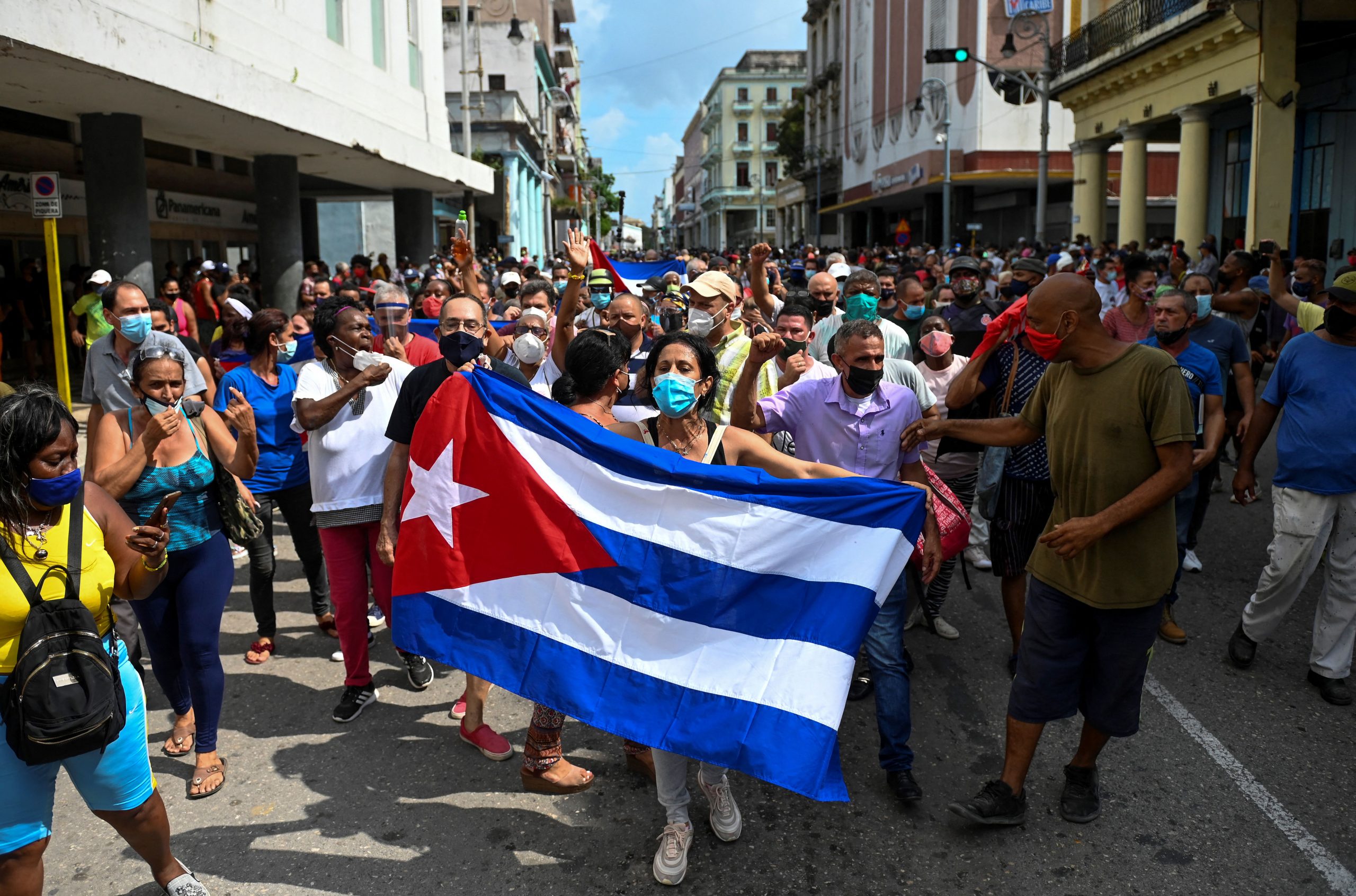Thousands of protestors are out on the streets in the small island nation of Cuba to protest against the current communist government. These demonstrations are believed to be one of the biggest uprisings the nation has seen in over three decades.
The protests are an outcome of citizens’ long-accumulated anger against Cuba’s collapsing economy and the sheer mismanagement of the COVID-19 pandemic.
The pandemic situation in Cuba, a country of 11.2 million residents, has been worsened with the entry of the highly contagious Delta variant of the coronavirus. The health crisis is accompanied by widespread economic distress. Since last year, when the pandemic began Cubans have been putting up white flags or the Benderaputi outside their homes to convey financial distress and the need for assistance.
What is the nationwide protest all about?
Cuba has been ruled by the authoritarian communist party for almost six decades now. With a population of about 11 million people who primarily speak Spanish, and a GDP of $100 billion. Its per capita GDP is roughly $8,000, according to the non-profit Council on Foreign Relations (CFR) data.
As per a Reuters report, the anti-government protests have been fuelled due to the economic distress the citizens have been facing. Cuba is in the middle of the country’s worst economic crisis since the fall of the Soviet Union, which was its old ally.
The economic status of the country deteriorated due to a number of sanctions imposed by former US President Donald Trump. The economy of Cuba was down by 11% in 2020 giving rise to a shortage of basic goods.
COVID-19 management in Cuba
Out of 11.2 million Cuban residents, only 1.5 million have been fully vaccinated against COVID-19.
As per Reuters, The country has not imported any vaccine but has been administering experimental vaccines to masses in the process of developing its own. However, this is not considered development by the citizens.
In fact, the anti-government protests erupted right after the Cuban government announced that its homegrown vaccine called Soberana (Sovereign) was about 91% effective against symptomatic patients.
Other than Soberana, Cuba has four more vaccines in the development stage. If approved, Cuba will become the first country in Latin America to develope its own vaccine against COVID-19.
Cuban government’s response
Cuban President Miguel Mario Díaz-Canel has blamed the demonstration on the US government. He said that the “sincere protesters” have been “manipulated” by the US-orchestrated social media campaigns and “mercenaries” on the ground.
Also Read: Anthony Blinken says it ‘grievous mistake’ for Cuba to blame US
The government has also taken efforts to mitigate the economic crisis. Earlier in February, Cuba announced it will allow private businesses to operate in most sectors of the national economy. The implementation of the aforementioned reforms is expected to give a boost to small businesses, allowing private players to move beyond tourism and small farms.







